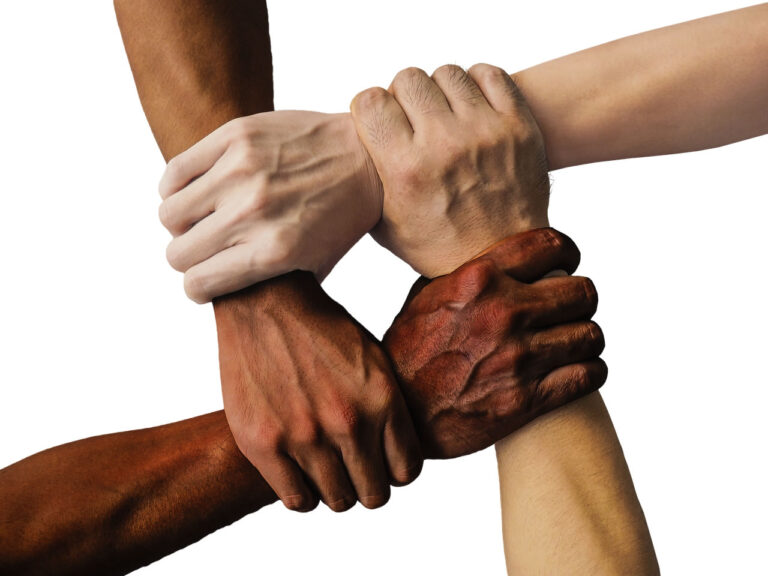Catalyst for Change
by Snéha Khilay
Is there value to professional development training for aspiring black and minority ethnic managers?
A number of organisations seem to give the impression that they have made significant efforts to recruit and retain staff from a black and minority background, through their war for talent processes. The ideology being that this initiative aims to help ensure a steady supply of trained, competent staff with a level playing field between staff at all levels. However in a survey conducted by Harvey Nash Engage Network, representing leaders from all ethnic backgrounds, findings show that seven out of ten (71%) have experienced discrimination in their career indicating that they have had to work even harder to reach board level or the most senior positions. Given that improving diversity requires commitment from the very top of an organisation, the research points to a lack of action from the CEO and board, with over half (52%) of respondents believing that CEOs and leadership teams do not see the business benefits of diversity to the bottom line despite numerous academic and other studies such as McKinsey’s Diversity Matters.
There is value in setting up processes to tackle the current imbalance, particularly at more senior levels. However the resistance by some leaders who believe that by specifically targeting black and minority groups and putting in place special measures to extend their professional development, competence and leadership skills is inadvertently creating a notion of segregation, a concept of ‘them and us’. Judy Ryde in her book ‘Being White in the Helping Professions’ advocates that the arena of ‘equal opportunities’ had tended to encourage a reliance on ‘politically correct’ notions which leads to a prescribed way of thinking and acting. Agreeing with Ryde’s principles, fundamentally the question is; how can leaders adopt, adapt and improve to enable black and minority ethnic staff to achieve their potential as senior managers and leaders? Note the change in stance from what to how. Are organisations wasting talent through their biases as opposed to giving a message to their BME colleagues of; we want you to feel valued and know that you are valuable?
Having led training programmes on professional leadership and development specifically for black and minority ethnic staff over recent years, aptly titled ‘Finding Your Mojo’, it is apparent that these sessions have consistently had huge, positive impact on the personal and professional lives of the participants concerned. Typical course elements resulting in this positive outcome include effective communication and presentation skills, goal setting, managing limiting beliefs (and unconscious biases) and the value of raising one’s profile.
These programmes ‘allow’ for empathy and good humour of fellow participants and understanding of the difficulties / obstacles encountered. In some instances staff from a BME background feel better able to discuss these difficulties, saying that they would feel anxious and vulnerable in discussing these with work colleagues, the perception being, that, in sharing their difficulties (with colleagues), they might be seen as ‘unable to cope under pressure’. The programme gives participants the space to talk and just be, whilst establishing clear cut boundaries, it was not a whinge zone fest, instead, the focus is on taking responsibility for change and developing a skill set to succeed.
Rita, a 43 -year-old woman attended one of these course and initially battled with angst as she did not think she had any skills – she had been ‘plodding on with life’, focusing on her role as office manager. During the programme, Rita became more confident and was able to acknowledge (with pride) of her current skills set. Having worked through her limiting beliefs, Rita assertively asked her organisation to support her so she could do a postgraduate course and work at the same time. She is now a Director at the same company and has written a chapter in a management book. Rita claims that her loyalty to the organisation is fundamental and has valued the support.
CT, another participant – sheepishly – confessed on day 2 of the course, having been asked to be accountable for submitting 2 job applications, that he has been offered a job as Head of his service. There was an electrifying response to this from the group. Other participants have greater confidence in setting boundaries, often seeking out an internal mentor who can support their ongoing career and professional development as well as management competence. Overall, there are very few participants – I have yet to meet one – who regrets attending a personal development programme or feels they’ve not benefited from such a valuable opportunity to re-focus on their career aspirations.
Organisations who have made the effort to reflect on and evaluate their staff from black and minority ethnic background and their experiences have had important insights into how well it ‘does difference’ in all aspects of the organisational structure. By focusing in the areas of recruitment, retention, promotion, development, there is a better understanding of how equality is managed and implemented. At the practical level, the organisation reap benefits not only through the reduced costs of less formal grievances; there is a greater tendency for staff to apply for promotion or further professional qualification after attending a personal effectiveness training programme. By maximising employee potential, it has a direct impact on employee and organisation effectiveness, productivity and profitability. It is more cost effective to maintain and develop a satisfied employee than to hire a new staff member. On occasions, it is worth spending thousands to make millions.
Blue Tulip Consultancy runs Finding Your Mojo, professional development programmes for black and minority ethnic aspiring managers and leaders. The programme, spread over 5 months, includes workshops, action learning sets, input from guest speakers and one to one coaching sessions.
If you would like more details or to have a chat about how we can help your organisations please get in touch at hello@bluetulipconsultancy.com or visit www.bluetulipconsultancy.com
Snéha Khilay
Managing Director
Inspired by the famous Gandhi quote, “be the change you want to see in the world”,






